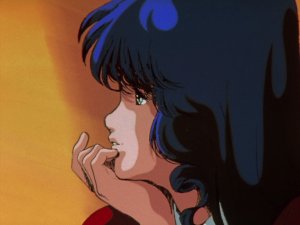"Do you love your family?”
There are no perfect families. Even with the same blood coursing through our veins, we all remain human; living in close quarters, we’re bound to have differences. Disagreements will accompany warmth and support, affection and acceptance mix with disappointment and misunderstanding. But when we have nowhere else to go, we can always return home (right?) Yet like any other relationship might fail, so may a family—romantic as it sounds that familial bonds are unbreakable. So much is stacked against this most important of relationships, though the ideal is that word again: “unbreakable.” Outside external problems like financial concerns, personal failings and instances of abuse and neglect constitute the most daunting. You see, while there are no perfect families, there *are* many unhappy ones.
Kazokugari (literally “Family Hunting”) takes this idea to ask some harsh questions. At its very worst, can a dysfunctional family be saved? If things appear hopeless, should the entire institution of family be torn down—even if that necessitates murder? When we’re hurting too much, is it better to live or die (and do we have the right to make that decision for others)? To answer, this drama uses three intertwining stories whose themes and importance overlap. Our main characters combat their own demons separately, but each is being suffocated by family issues and lack of direction or comfort. What links the three are the family suicides (murders?) which haunt their city; as they sink deeper into the mystery, they’re drawn closer together for better or worse. Of these, two combine beautifully (Hizaki and Sudo) though alone Hizaki was far and away the most interesting character in the series. The third, Detective Mamihara, ends up feeling the least focused and connected despite his story’s thematic importance. He’s ultimately one of those characters that might have worked better as a supporting character.
But the brilliant, atypical nature of Kazokugari begins with *how* it tells the story: this drama is a strange chimera of the horror and family genres. Touching scenes often find themselves sandwiched between ones that might seem more at home in a slasher flick. Like in Karamazov no Kyodai, isolated disturbing imagery is used to transition scenes (for instance, perfect fruit that turns to reveal rot—just before the mold is sliced away by an unseen hand). Viewers may find themselves warmed to the core, then frightened off the edge of their seats. My only issue would be that sometimes these elements are pushed too far and muddy the intent, which is to create an uncanny atmosphere. When things worked out it was great, but sometimes my reaction was “Huh,” rather than “EEK!”
Just like her character Hizaki, Matsuyuki Yasuko hooked my interest from the first. This is my third encounter with this talented actress, and I’ve come to realize she often stars in excellent projects. That suits her, since her performances are just as exemplary—and she maintains her standard here. Her vivid expressions betray the character’s feelings to the core, whether it’s an insight to her hollow pain or a rare moment of peace. Ito Atsushi, whom I have great affection for, absolutely pales in comparison. But while he might not have the charisma of his character's favorite Basquiat, he holds his own in terms of everyman relatability and likability. Of the rest of the cast, I wanted to point out as notable Kitayama Hiromitsu. His Keitoku was excellent and much-needed comic relief that somehow fits right in despite the dark themes of the drama.
Music wins a high score for two reasons. First, the orchestrations are perfect mood-setters. No scene would have half as much impact without them, whether creepy or tender. My favorite example will be the inclusion of tragic Ozaki Yutaka’s heart-wrenching “I Love You.” It’s used devastatingly in many scenes; if one knows the lyrics, it enriches the context. There’s also the lovely theme (“Shout” by androp) which ends each episode with a suitable bittersweet feel. Secondly, the sound effects in this series are just genius. These offset dialogue and actions with fabulous timing, giving them new atmosphere—whether it’s a painful sentence being repeated in horrifying tones or some cruel violin riff.
Please be forewarned this drama includes depictions of domestic abuse by and against children, blood, and disturbing imagery. Sensitive viewers may find some parts unpalatable.
Considerați utilă această recenzie?























